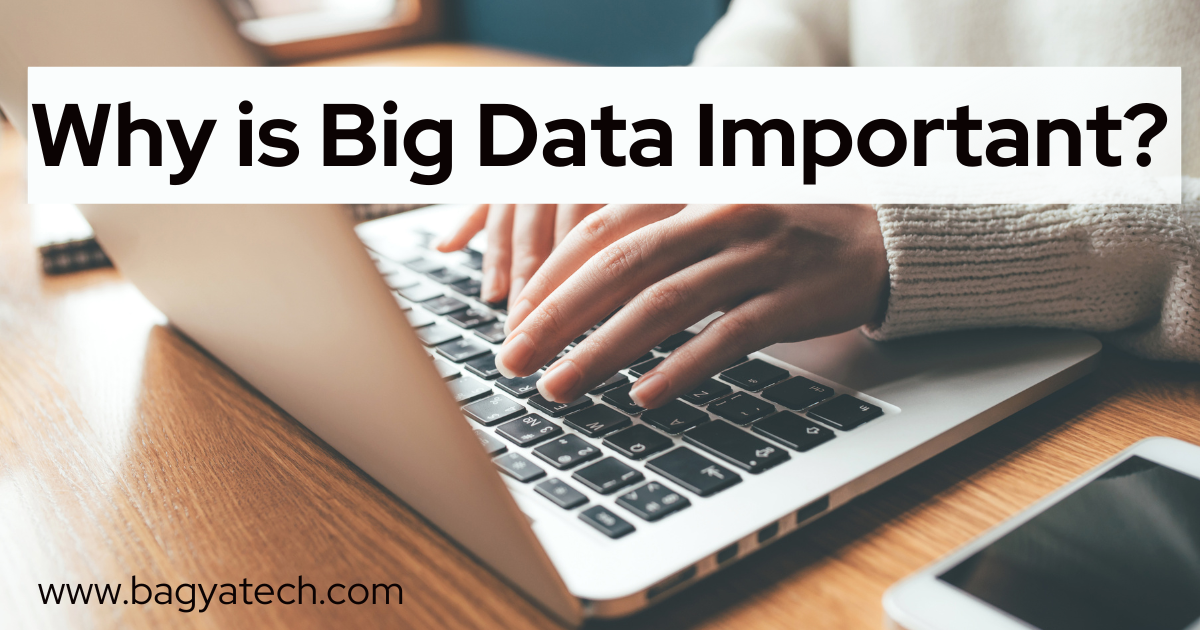In this era of information, the vast volumes of data produced daily have changed the world you live in. Vast amounts of structured and unstructured data are referred to as big data, and they are crucial to many facets of contemporary civilization. Its significance stems from the sheer amount of data and the knowledge and insights it may provide when correctly examined. Hadoop big data can be learned from the beginning to the core through available resources online or any valuable online big data course. This post discusses the importance of big data and provides examples from a variety of businesses.:
Enhanced Decision-Making in Healthcare
The healthcare sector has transformed because of big data, which has made it possible to analyze substantial patient databases to learn more about illnesses, treatment outcomes, and patient care. To find potential risk factors for diseases and create individualized treatment regimens, researchers can mine medical records, clinical trial data, and genetic information. Additionally, real-time patient data monitoring, including vital signs and biometric data, allows medical practitioners to react promptly and proactively to urgent circumstances, eventually saving lives.
Personalized Customer Experiences in Retail
Big Data enables companies to understand consumer behavior, tastes, and purchasing trends in the retail industry. Retailers can provide customized product recommendations and targeted marketing efforts by evaluating data from online interactions, purchase history, and social media. To give its consumers a highly customized shopping experience, Amazon, for instance, uses Big Data analytics to propose suitable products based on their browsing and purchasing history.
Optimized Logistics and Supply Chain Management
Logistics and supply chain management are the foundation of effective operations in many sectors. Big Data analytics assists firms in streamlining the movement of goods, lowering the cost of transportation, and reducing delays. Big Data Hadoop is used by businesses like UPS and FedEx to examine past delivery data, traffic patterns, and weather forecasts to improve delivery routes and operational efficiency overall.
Financial Fraud Detection and Risk Management
Big Data analytics are essential for fraud detection and risk management in the financial sector because they deal with enormous volumes of data daily. Banks and other financial organizations use sophisticated algorithms to spot unexpected trends in transaction data and spot potential fraud. These organizations can reduce risks, safeguard client funds, and guarantee the integrity of financial systems by analyzing enormous amounts of information in real-time.

Improving Urban Living with Smart Cities
Due to big data, cities are becoming intelligent, interconnected ecosystems in the age of urbanization. In real time, cities may monitor traffic, mass transit, energy use, and environmental variables by integrating sensors and data-gathering equipment. With the help of this data-driven strategy, authorities can optimize traffic flow, enhance public services, lower energy use, and increase the sustainability and livability of urban areas.
Personalized Content Recommendations in Entertainment
Delivering material that connects with individual tastes is essential to the entertainment business. Streaming services like Netflix, Hulu, and Spotify extensively rely on Big Data for consumers’ individualized content recommendations. These platforms provide customized content suggestions based on user viewing patterns, search histories, and interactions, ultimately increasing user engagement and pleasure.
Precision Agriculture and Sustainable Farming
Precision farming techniques in agriculture are being transformed by using big data. Farmers can optimize irrigation, fertilization, and pest management using crop health monitors’ data, soil quality sensors, and weather forecasts. Higher crop yields, less resource waste, and sustainable farming methods result from this precision agriculture approach.
Crime Prevention and Public Safety
Law enforcement organizations increasingly use Hadoop Big Data analytics to anticipate and prevent crimes. Authorities can pinpoint patterns and hotspots of criminal activity by examining historical crime statistics, social media feeds, and live security footage. They can effectively allocate resources due to this intelligence, react quickly to threats, and enhance public safety.
Wrapping It Up:
The importance of Big Data is phenomenal; the above points are the source of the importance of big data today. As mentioned in the introduction, it will be helpful in your learning adventure if you get access to a big data course with certification.

